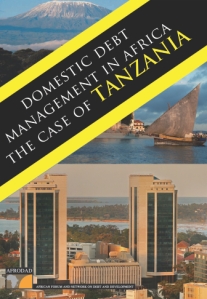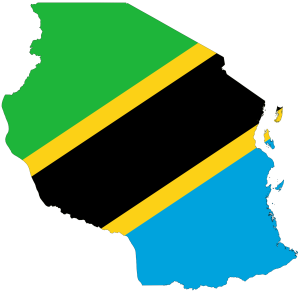
Officials from the African Forum and Network on Debt and Development (AFRODAD) and the Tanzania Coalition on Debt and Development (TCDD) met Tanzania’s legislators on the 31st of August 2013 to discuss findings of a study conducted by the former on the country’s domestic public debt management. AFRODAD also took the opportunity to promote best practices of borrowing in the form of a charter of principles developed from its experience in lobbying on debt cancellation over the past 17 years.
Commenting on the development, AFRODAD’s Executive Director Collins Magalasi said the organisation had launched studies into domestic debt management in 2012 after noting trends pointing to increased dependence on that source of finance. He said the lack of resources available to poor countries in recent years has forced some governments to turn to new ways of raising finance such as borrowing from domestic markets. AFRODAD links the increase in domestic borrowing by some countries to the drying up of concessional loans and the reduction in aid caused by the global financial crisis among other factors.
“Unfortunately policy discussions in Africa have mainly focused on external debt, mainly to debt relief under the Heavily Indebted Poor Countries (HIPC) and Multilateral Debt Relief Initiative (MDRI). AFRODAD now believes that it’s just as important for governments to assess the sustainability of total debt (both external and domestic debt),” said Magalasi. Magalasi further bemoaned the fact that there is no internationally agreed benchmark for assessing the sustainability of domestic debt unlike in the case of external debt. “The result is that no clear guidelines exist on what poor countries should do with their domestic debt markets,” he said.
The research report (Domestic Debt Management in Africa: The Case of Tanzania) reveals that money and capital markets in Tanzania were generally non-existent during the era when the country pursued socialist principles of economic management. However the government launched financial sector reforms aimed at supporting a stable macroeconomic framework in 1991 reversing this approach. This included the development of a national debt strategy in 2002, which was later revised in 2011.
Using the provisional benchmarks suggested by Debt Relief International (DRI), Tanzania would seem not to have any domestic debt sustainability problems from the Domestic Debt/Gross Domestic Product (GDP) and Domestic Debt/ Government Revenue perspectives. However, the country’s Domestic Debt Interest Payments/ Government Revenue give a different picture. According to the DRI ratio interpretation, Tanzania can be considered to have a potentially unsustainable domestic debt burden.
“The approach of this ratio to the potentially unsustainable range should sound as a warning of the increasing domestic debt burden in the country and should thus be treated with caution,” says AFRODAD. The report also raises concern that interest payments on domestic debt have been commanding an increasing proportion of both government revenue and recurrent expenditure compared to external debt interest payments, from a cost perspective. Furthermore, the banking system is by far the dominant holder of government issued securities in Tanzania. According to this report by AFRODAD, there is excessive domination by one sector in the purchase of government securities does not augur well from a “systemic risk” point of view.
The report also notes that information on the liabilities of state owned enterprises is not included in publicly available sources of data. In principle, when government makes guarantees for non sovereign borrowings and liabilities of regional and local governments, and public/private sector enterprises it adds onto the domestic debt as contingent liabilities when they fail to pay. AFRODAD argues that the government must publish the size and attributes of contingent and other fiscal risks in line with full disclosure of fiscal information.
Notably, Tanzania has the basic legal and institutional framework to manage domestic public debt. However AFRODAD has identified some areas which merit some reforms through appropriate amendments. For instance, it asserts that domestic debt should be mentioned more explicitly in the relevant sections of the constitution, which should also clearly extend the authority of the Union’s National Assembly over that aspect of borrowing. AFRODAD also notes that the constitution does not mention the existence and the roles of the central bank, which is a key actor on domestic debt management. AFRODAD believes parliament needs to play an effective oversight role over domestic debt but they lack the capacity to play an effective role in controlling government’s loan contraction activities. AFRODAD therefore calls for Parliament to be assisted with extra research capacity to carry out budget analysis.
Additionally the report shows that other stakeholders such as civil society currently play a marginal role on the issue of domestic debt. AFRODAD implores civil society to build its capacity on this issue to enable it to play an effective watchdog role and also ensure extensive economic literacy on public debt targeted at the public. The organisation also says that legislative reforms are needed to give civil society legal and institutional recognition in the process of public loan contraction and debt management.
AFRODAD, which is a pan African civil society organisation that has lobbied for debt cancellation and addressed other debt related issues since inception, has also carried out similar studies in Kenya, Senegal, Ghana, Malawi and Zambia. It works in close partnership with likeminded local organisations such as the TCDD to encourage African governments to manage borrowed resources better. The TCDD is a coalition of CSOs that was established in Tanzania in 1998. TCDD campaigns for sustainable foreign and domestic public debt. It also campaigns for meaningful civil society involvement in the formulation, implementation and monitoring of pro-poor government policies.
Tags: Accelerated Industrial Development of Africa, AFRODAD, BORROWING, development, domestic resource mobilisation, HIPC, innovative finance, national development, parliament, TANZANIA, tax and women, TCDD
 The government is also offering PPPs in land concession agreements, where a private company enters into an agreement with the government to have the exclusive right to operate, maintain and carry out investment in a public utility for a given number of years.
The government is also offering PPPs in land concession agreements, where a private company enters into an agreement with the government to have the exclusive right to operate, maintain and carry out investment in a public utility for a given number of years.